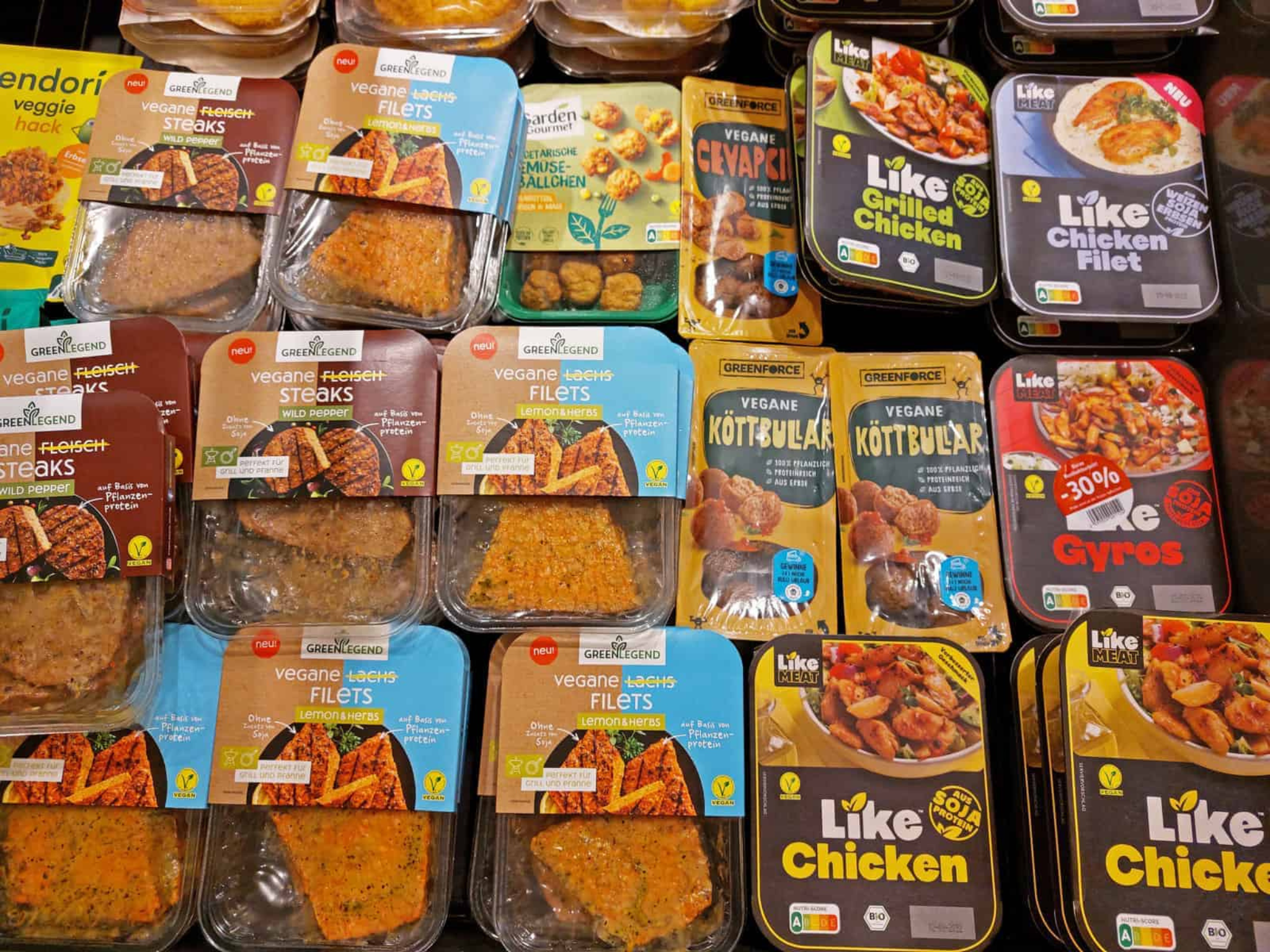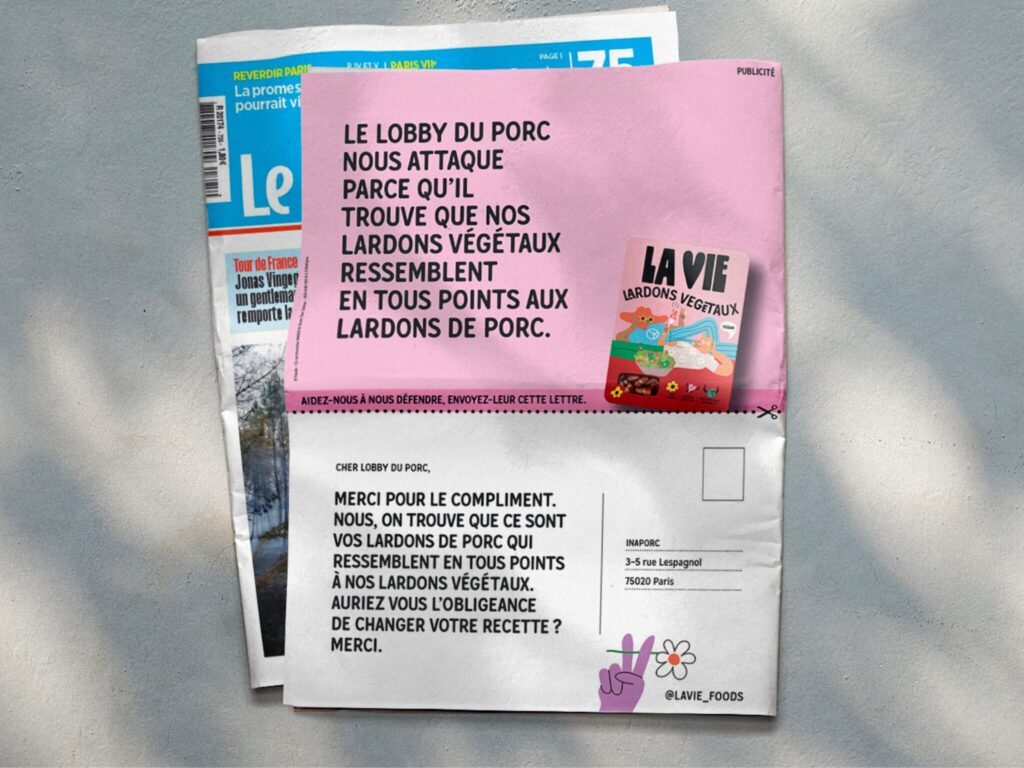
The EU Commission has reignited the plant-based meat labelling debate by proposing a ban on the use of 29 animal-related terms for vegan packaging labels.
When the European Court of Justice (ECJ) ruled that no member state can prohibit companies from using terms like ‘veggie burger’ or ‘vegan bacon’ on product labels, there was a collective sigh of relief among the plant-based industry. At long last, anti-labelling attacks had been defeated.
Maybe not, though. In its revision of the Common Market Organisation (CMO) regulation, the European Commission has proposed restricting the use of 29 “forbidden” meat-related terms on the packaging of plant-based alternative products.
The move follows increasing pressure from a dozen member states to prevent such designations on plant-based meat products. In a parallel review of the CMO regulation in the EU Parliament, French MEP Celina Imart has proposed a similar legislation.
It comes months after the ECJ struck down an attempt by France to impose a national-level ban, a decision that was finalised by the country’s own top court in January.
“The ruling stated that member states could not introduce bans on their own, unless they first legally defined the terms they intended to ban. Otherwise, there would have to be an EU-level ban,” Rafael Pinto, senior policy manager at the European Vegetarian Union (EVU), which co-led the case against France, tells Green Queen. “And this is what’s happening now. So an EU-level ban is legally possible.”
The proposal will now make its way to the European Parliament and Council (where agriculture ministers meet), being subject to voting and negotiations at all stages. “The timeline is not yet clear. We call on the Members of the European Parliament, European Commission leadership and ministers to remove the proposal,” he says.
EU Commission talks up ‘cultural significance’ of meat

Currently, plant-based products can use terms like ‘burger’, ‘chicken’ and ‘ribs’ as long as the packaging makes clear that the contents don’t come from animals. This is thanks to a 2020 decision by the EU Parliament, where MEPs voted against an EU-wide ban on meaty terms (but upheld a parallel 2017 ruling for non-dairy products).
The EU has close ties with the livestock lobby, which has played a major role in watering down and delaying its green legislations. The move suggests that Big Meat sees plant-based products as a threat, and these undertones could be seen in the wording of the Commission’s proposal.
“Sustainable livestock systems are essential for the union economy, the viability of rural areas and the preservation of the environment and rural landscapes. The union livestock sector is particularly vulnerable to various shocks and global competition and it is required to meet high production standards that are not always rewarded by the market,” the document reads.
“In this context, it is necessary to acknowledge the natural composition of meat and meat products, in the interest of both union producers and consumers,” it adds.
“Meat-related terms often carry cultural and historical significance. It is therefore appropriate to protect meat-related terms to enhance transparency in the internal market as regards the food composition and nutritional content, and ensure that consumers can make well-informed choices, particularly for those seeking a specific nutritional content that is traditionally associated with meat products.”
Among the 29 words the EU Commission is seeking to ban are:
- Beef
- Veal
- Pork
- Poultry
- Chicken
- Turkey
- Duck
- Goose
- Lamb
- Mutton
- Ovine
- Goat
- Drumstick
- Tenderloin
- Sirloin
- Flank
- Loin
- Ribs
- Shoulder
- Shank
- Chop
- Wing
- Breast
- Thigh
- Brisket
- Ribeye
- T-bone
- Rump
- Bacon
Notably, the list doesn’t include words like ‘burger’, ‘steak’ and ‘sausage’. But these terms are part of the version presented by Imart in the Parliament, which will be voted on after the summer.
Latest proposal labelled ‘nonsense’ and contradictory to EU goals

The proposal was announced the same week French agriculture minister Annie Genevard targeted the term ‘veggie steak’ in a debate on proteins at the Agriculture and Fisheries Council.
“This has been one of the key priorities for industry lobbies over the past years in an attempt to prevent consumers from trying these new products and hinder the market growth,” says Pinto. “With all the support and policies our farmers need, it amazes us that we’re still spending time and public resources on this nonsense.”
Europe is the world’s largest market for plant-based meat, with sales totalling $3.3B in 2024. And several studies over the years have shown that its consumers are not confused about the nature of a product labelled ‘vegan steak’. In a large study by the European Consumer Organisation in 2020, 80% said plant-based meat should be allowed to use such terms. And in the 2023 Smart Protein survey, only 9% of citizens from nine member states said they didn’t recognise plant-based meat alternatives.
Meanwhile, in an opinion published last September, the ECJ’s advocate-general stated that the use of several different names resulting from such a ban could be more confusing for consumers. The move is also contradictory to the EU’s promise to diversify protein sources and bolster domestic plant-based production, as well as its new bioeconomy initiatives.
According to the EVU, Europe’s top court had stated that current legislation is sufficient to ensure consumer protection and transparency, a claim also made by the EU Commission on several occasions. “We are surprised to see the Commission change its views and priorities in such an unexpected manner. With all the real issues currently faced by European agriculture, there are surely more important policies to focus on,” the organisation said.
“Europe cannot set itself the priority to reduce bureaucracy, red tape and increase competitiveness on Mondays and Tuesdays, and then come up with completely unnecessary proposals on Wednesdays and Thursdays,” says Pinto. “We cannot set food security and climate change as priorities and then hinder the development of key solutions. We cannot call for innovation in agriculture and new revenues for farmers, and restrict important opportunities in the plant-based sector.”
He adds: “This proposal goes completely against the agenda of the current European Commission, and the priorities of European citizens. We call on the college of commissioners and President Ursula von der Leyen to step up and abandon this nonsense.”
The post EU Commission Proposes Banning Meat-Like Terms on Plant-Based Labels appeared first on Green Queen.
This post was originally published on Green Queen.